Program Requirements
Because of the inherent requirements of the profession, certain minimum physical abilities are required. These include:
- Visual acuity to discern radiographic details
- Ability to see and function in a semi-dark setting
- Auditory acuity to hear low tones
- Ability to communicate clearly verbally
- Ability to lift and move immobile patients
- Ability to stand for long periods of time
A complete list of Technical Standards and Essential Functions is available at this link.
High-school preparation for a career in Radiologic Technology should include algebra, biology, chemistry, geometry, and physics. ACC’s degree plan in Radiology is a two-year course of study (including summers and prerequisites) that prepares the student for a career as a Radiologic Technologist through classroom study and supervised clinical experience. The curriculum includes:
- Anatomy and Physiology
- Patient Care and Management
- Equipment Operation
- Radiographic Procedures
- Radiation Protection
- Image Production
- Clinical Practicum (requires CPR certification upon admission)
Schedule
The Radiology Program is two years in length after acceptance. It is a full-time program and classes are held during the day, five days a week. The program only starts in the Fall semester. There are over 1,200 required clinical hours in which students train at a variety of clinical education settings. This includes hospitals and private medical imaging clinics. The program has over 30 clinical sites which include out-of-town sites in Killeen, Georgetown, and San Marcos. Most of the clinical education sites are in the Austin metro area. Students must have reliable transportation, since they may be assigned to any clinical site. We can only accept the number of students that can be safely accommodated at the clinical sites available to us. The clinical coordinator places students at clinical sites based on the types of procedures being taught.
Working while attending the Radiology Program is extremely challenging for most students. It is recommended that work be limited to 20 hours per week because of the time commitment required for classes, labs, clinicals, study and preparation. Plan to spend 2-3 hours on preparation for every hour of class and lab.
A sample of the first year in the program:
- Fall Semester — Mondays and Wednesdays are full days
- Spring Semester — Mondays through Thursdays students attend from 7:30/8 a.m. to 4/4:30 p.m.
Pregnancy Policy
The National Council of Radiation Protection (NCRP) advises that control measures should be taken to avoid or reduce the risk of ionizing radiation exposure to the human embryo or fetus. It should be noted, however, that the risks of probability of detectable effects induced by medical diagnostic exposure are very small. While it is strictly voluntary, to ensure that extra protective measures be initiated promptly, it is suggested that the student notify the program director of documented pregnancy. The program will keep all information related to the pregnancy strictly confidential.
It is the policy of Austin Community College Diagnostic Medical Imaging Program to provide reasonable radiation protection to student radiographers occupationally exposed to ionizing radiation. Declared pregnant students are expected to follow the additional protective measures detailed below which have been developed to restrict the fetal radiation dose to not exceed 0.5 Rem for the entire pregnancy.
After declaration, the pregnant student in the Radiology Program will be provided a copy of the United States Nuclear Regulatory Commission Guide 8.13 which addresses prenatal radiation exposure. The guide may also be downloaded at this link.
The pregnant student must make the final decision as to their acceptance or non-acceptance of this minimal risk.
The following procedure shall be followed:
- Disclosure or declaration of pregnancy is strictly voluntary. To ensure that additional protective measures for the fetus and mother are initiated quickly, the student should inform the Program Director upon medical verification of pregnancy in writing.
- The Program Director will arrange for the student to review her previous radiation exposure history. The student will be provided with a copy of NRC guide 8.13 and will review protective actions and the risks associated with radiation exposure to the fetus.
- Upon medical verification that a pregnancy exists and after the student has consulted with her Physician, the student must submit the following forms:
- Physicians Awareness of Pregnancy Form – This form provides the approximate date of conception, expected delivery date, and recommended date the student may return to both didactic and clinical education courses.
- Pregnancy/Radiation Safety Protection Verification Form – This form declares pregnancy and indicates a choice of options the student may select. See below for the list of options.
Option 1: Leave of Absence during Pregnancy
If the student so decides, she may elect to leave the program during the pregnancy period.
- If the student decides to accept this option and leave the program, she must immediately notify the Department Chair/Program Director in writing.
- An incomplete (Inc.) will be awarded for the course(s) in progress. The remaining coursework may be completed upon the students return, however it may not be feasible for the student to re-enter the program immediately since all courses are offered chronologically and only once a year.
- All didactic and clinical coursework must be completed prior to completion and graduation from the program.
Option 2: Remain in the Program with no Modifications of her Clinical or Lab Activities
If the student so decides, she may continue in the Program with the following requirements:
- The student is required to review and implement radiation safety practices as outlined by NCR Guide 8.13.
- The student’s class, lab, or clinical schedule will not be modified to postpone instructional activities that can result in increased radiation exposure to the student. These activities include fluoroscopy, portable radiography, surgery/C-arm Procedures, angiography, and lab experiments utilizing energized equipment. Exceptions to this policy are any procedures involving Nuclear Medicine imaging or the implanting of “radioactive seeds” used in Brachytherapy. Because of the potential of an increased exposure to radiation during these Nuclear Medicine/Radiation Therapy Procedures, strict avoidance is recommended.
- The student is required to wear two exposure-monitoring devices:
- Fetal badge that is changed monthly. This must be worn over the Pelvis area and under the lead apron.
- Regular radiation dosimeter that is processed quarterly. This should be worn at collar level.
- The student may wear a wrap-around lead apron during exposures to radiation. Lead aprons of 0.5 mm lead equivalency are considered sufficient to attenuate 88% of the beam at 75 kVp. Above 75 kVp, aprons with 1.0 mm lead are recommended.
Option 3: Remain in the Program with Modification of her Clinical and/or Lab Activities
- The student is required to review and implement radiation safety practices as outlined by NRC Guide 8.13.
- The student may request modification of her schedule to postpone any procedures in class, lab, or clinic which can result in increased exposure to radiation. These activities include but are not limited to conventional fluoroscopy, portable radiography, Surgery/C-arm procedures, angiography, and lab experiments/projects using energized radiographic equipment. It should be noted that the student cannot graduate from the program until any clinical competencies using the listed modalities/procedures have been successfully completed and competency is achieved.
- The student is required to wear two exposure monitoring devices:
- Fetal Badge that will be changed monthly
- Regular TLD that is changed quarterly.
- The student should wear a lead apron of 0.5mm pb equivalency during any exposures and must always stay behind the control console for maximum protection.
It is the students right to also withdraw her pregnancy declaration at any time. Should a pregnant student elect to undeclare a pregnancy, she must do so in writing to the Program Director.
Search the Health Sciences Website
Radiology Updates
Feedback Hub: Walk-In & Share your voice!
The Health Sciences division is hosting a walk-in session to gather your feedback on our forms processes and website.
Read moreBats to Cats Transfer Program
Start at ACC and transfer seamlessly to Texas State University! If you are pursuing a Bachelor's degree, get the details on admissions requirements, deadlines, and financial support.
Read moreUPDATE: Central Health MAP Basic Insurance
Central Health - Medical Access Program (MAP) Basic coverage is no longer accepted at clinical sites effective Fall 2024. Only MAP (non basic) will be accepted.
Read more

